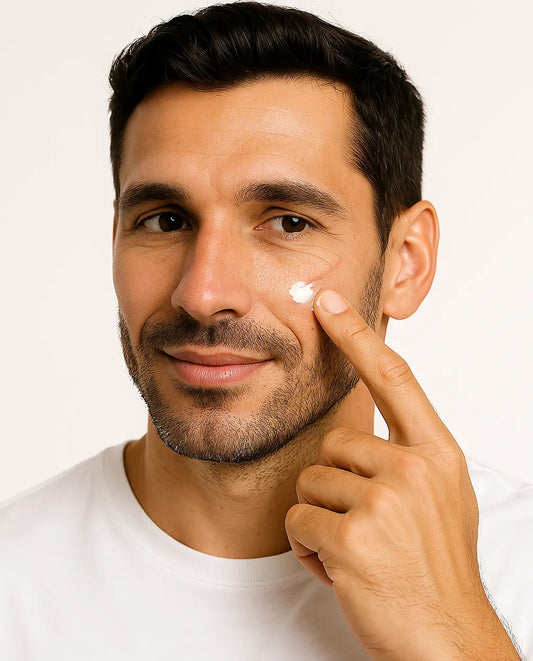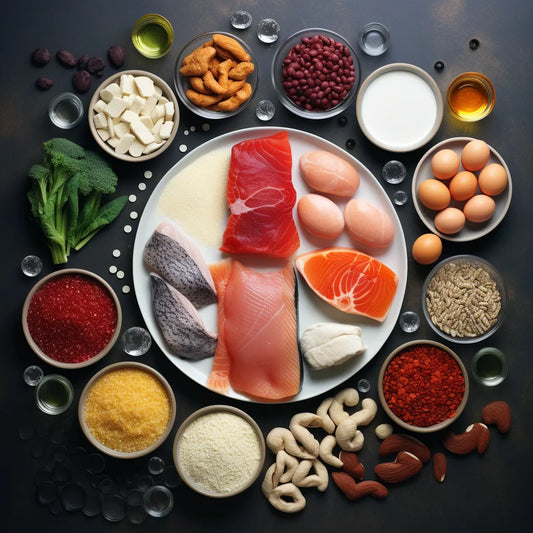

Picture this! You’re lifting weights, crushing cardio, and dominating pull-ups like a pro. And boy, don't those muscles look good? But, what happens when you have to take a break? Does hard-earned muscle turn into fat? As an ambitious, athletic man, you might have found yourself pondering over this question more than once.
Understanding how muscle and fat work is essential, especially when you're focused on getting the most from your workouts and maintaining a healthy, athletic physique. But fear not! We're tackling this commonly asked question headfirst, so you can focus on smashing your fitness goals without worry.
Let's debunk this myth together, and give you crystal clear insights into the facts around muscle, fat, and how your body works.
This article will help you understand the differences between muscle and fat, and most importantly, what actually happens when you stop training. Get ready to squash this myth for good!
Does Muscle Really Turn into Fat?
No, muscle does not turn into fat. Muscle and fat are two distinct tissues in the body that serve different functions. They cannot convert into one another. When you stop working out, your muscle mass can decrease - a process known as muscle atrophy. Simultaneously, fat cells may increase due to altered metabolism and potential increased calorie intake. This can create the illusion that muscle is converting into fat but, in reality, it's two separate processes happening concurrently.
What Happens When You Stop Exercising?
When you put a hold on your fitness routine, your body undergoes several changes. As your activity levels decrease, your body doesn't need as much energy, so your metabolism slows down and burns fewer calories. If your calorie intake remains the same, it may lead to weight gain. Simultaneously, muscles that are not regularly challenged by exercise can lose their tone and mass. This combination of reduced muscle tone and potential weight gain can create the misconception that muscle is turning into fat.
The Science of Muscles and Fitness
Understanding the physiology of your muscles can help you maintain your fitness level and physique. Here's a simple guide.
1. Your Muscle Composition
Muscles are composed of protein fibers that expand and contract to create movement. They are dense and take up less space than fat. Your body constantly breaks down and rebuilds muscle in a process called protein synthesis.
2. Maintaining and Growing Muscles
To maintain or grow muscle mass, you need to create a demand by consistently challenging them through resistance or strength training. Nutrition also plays a pivotal role in feeding your muscles with the necessary protein and nutrients to aid recovery and growth.
3. The Role of Fat
Fat, on the other hand, is your body's way of storing excess energy. It surrounds your organs, insulates your body, and serves as a reserve when energy levels deplete. Fat cells can expand or shrink, but the number of fat cells tends to remain the same.
4. Balancing Diet and Exercise
Exercising regularly and following a balanced, nutritious diet can help maintain lean muscle and keep excess fat at bay. Consuming a surplus of calories, especially from unhealthy sources, can lead to fat gain.
Can Unused Muscles Turn into Fat?
Unused muscles do not turn into fat. However, if left untrained, they can lose their density and mass over time - a process known as muscle atrophy. If your diet remains high in calories during periods of inactivity, it is likely that weight gain will occur, which might be interpreted as muscles converting into fat.
How Can You Prevent Muscle Loss?
To prevent muscle loss, it is essential to stay active, even during a break from your regular workout routine. Light activities like going for a walk, cycling, or doing household chores can keep your muscles engaged. Also, consuming a protein-rich diet can help prevent muscle breakdown and promote muscle recovery and growth.
Unleash Your Fitness Potential with Wisdom over Myths
In conclusion, the concept that muscles turn into fats is a fitness myth that has been debunked by science. Muscles and fats are completely different tissues serving different functions in the body. It's essential to keep a consistent exercise routine and maintain a healthy diet to support your fitness goals. Here's a quick recap:
Breaking Down the Myth:
- Your body's muscle and fat are entirely separate and cannot transform into each other.
- Without regular exercise, muscles can atrophy, while excessive calorie intake can lead to increased fat cells - not to mention muscle's denseness can decrease.
- Consuming a balanced, nutrient-rich diet is equally important as regular exercise in maintaining fitness.
You're more informed and ready to reach your fitness goals without worrying about muscle turning into fat. So, gear up, stay consistent, and conquer your fitness journey with factual knowledge on your side!










